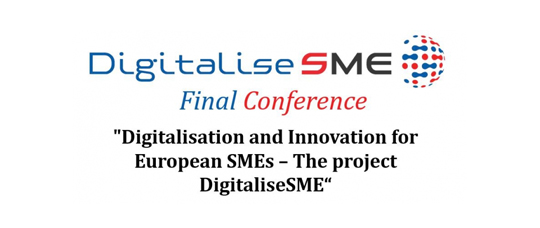
The DigitaliseSME closing conference, titled “ Digitalisation and Innovation for European SMEs – The project DigitaliseSME” took place on February 18 in Brussels. The event aimed at contextualising the very positive results of the project in the broader framework of the next actions, legislative and programmatic, that the European Union can take to support the digitalisation of small and medium-sized companies.
Following the opening words of Mr Walter Grupp, Secretary General of European Entrepreneurs CEA-PME, lead project partner, the Member of the European Parliament Massimiliano Salini (Italy, EPP) took the floor.
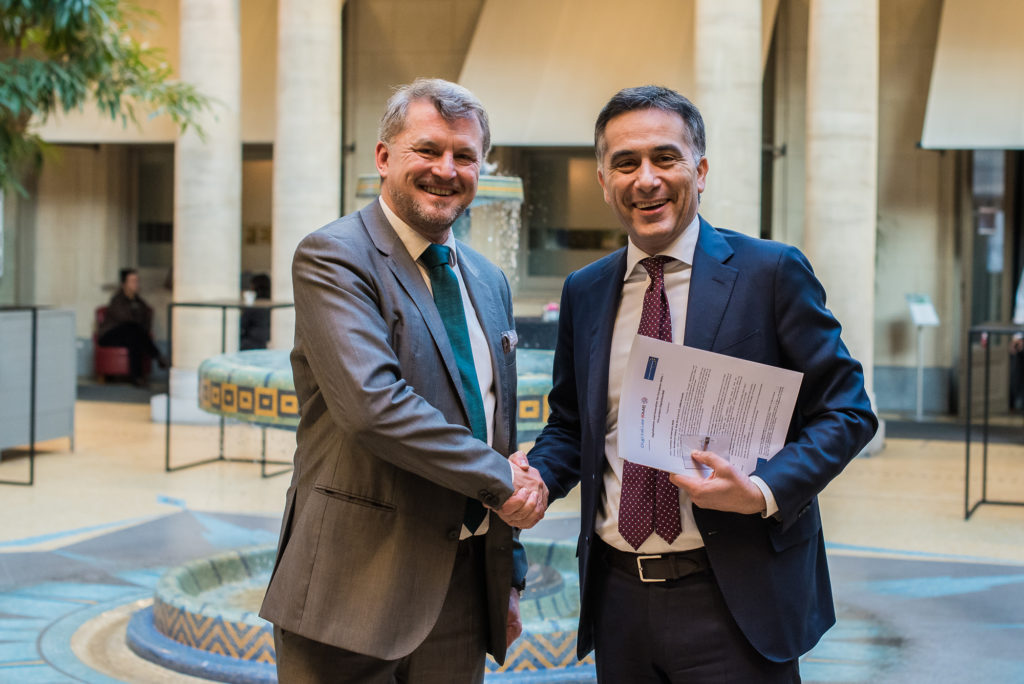
Mr Salini was the promoter MEP of the preparatory action DigitaliseSME, which enabled the European Commission to support the project. He reminded the audience, also tapping into his own experience as an entrepreneur, of the great need that SMEs have of digitalisation: “ It is the perfect tool for SME to improve internal management and push sales“.
Mr Salini’s keynote speech was followed by the presentation of Anne-marie Sassen, Deputy Head of Unit A2 “Technologies & Systems for Digitising Industry” at DG CONNECT of the European Commission.
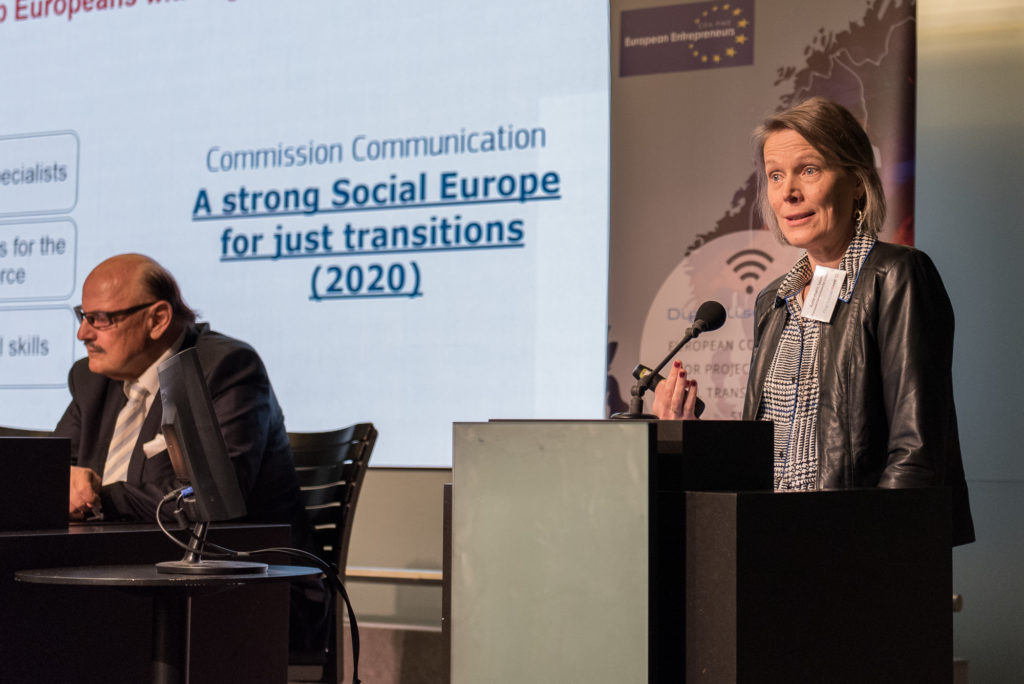
Her presentation focused on the Commission’s plans for digitalisation: specifically the Digital Europe Programme 2021-2027, which also aims to address Advanced Digital Skills and Digital Innovation Hubs. She specifically remarked that all members of society, SMEs included, must have access to digital skills, and that the Commission’s work is directed at achieving the widespread acquisition of these skills.
At the end of the keynote speeches, the conference verged on the presentations dedicated to the results of the project and how it can work as an example for future programs that want to help European companies digitalise.
Mr Stefan Moritz, Managing Director of European Entrepreneurs CEA-PME, gave an overview of the lessons learned and how they could be integrated in the 2021-2027 EU industrial policy program.
“DigitaliseSME clearly showed how it is more effective to offer tailored support to 10.000 garages than to 1 unicorn” he stated in his argument for the better effectiveness of helping many small business thrive than shooting for the sky for a big but probably unachiavable dream digital breakthrough.
Mr Moritz’s presentation can be found for download here.
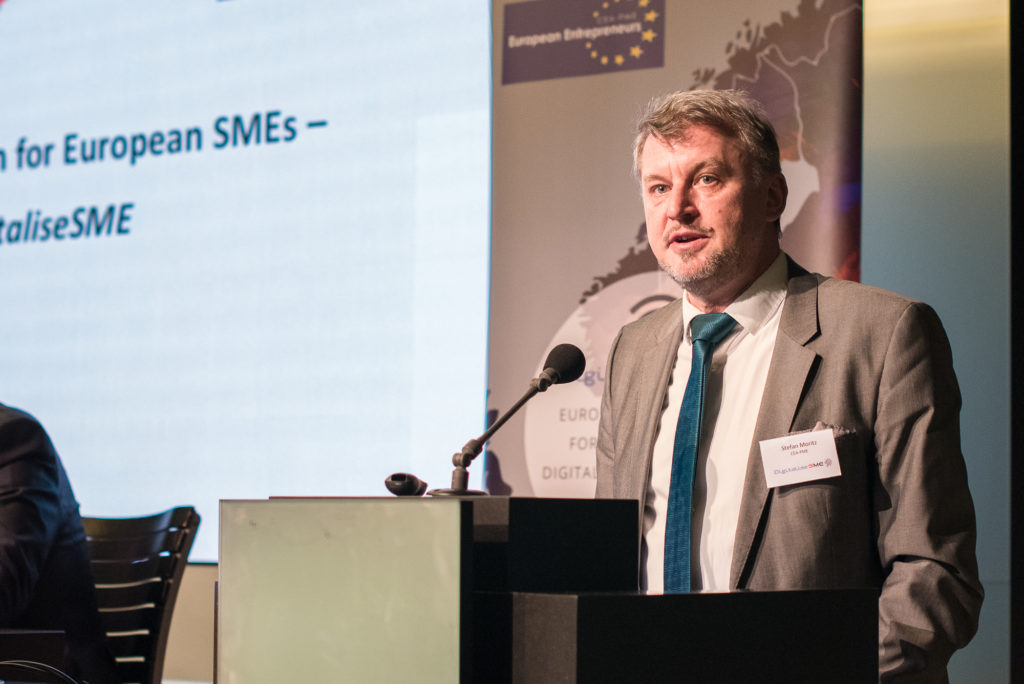
He was followed by Mr Werner Steinhögl, Head of Sector for Photonics – Laser based Technologies in Unit A4 of DG CONNECT, who was in charge of the project’s supervision from the European Commission.
He fully agreed that the project had indeed achieved what it set out to do, and confirmed that some of the findings have surely potential to be used as best practises for the future.
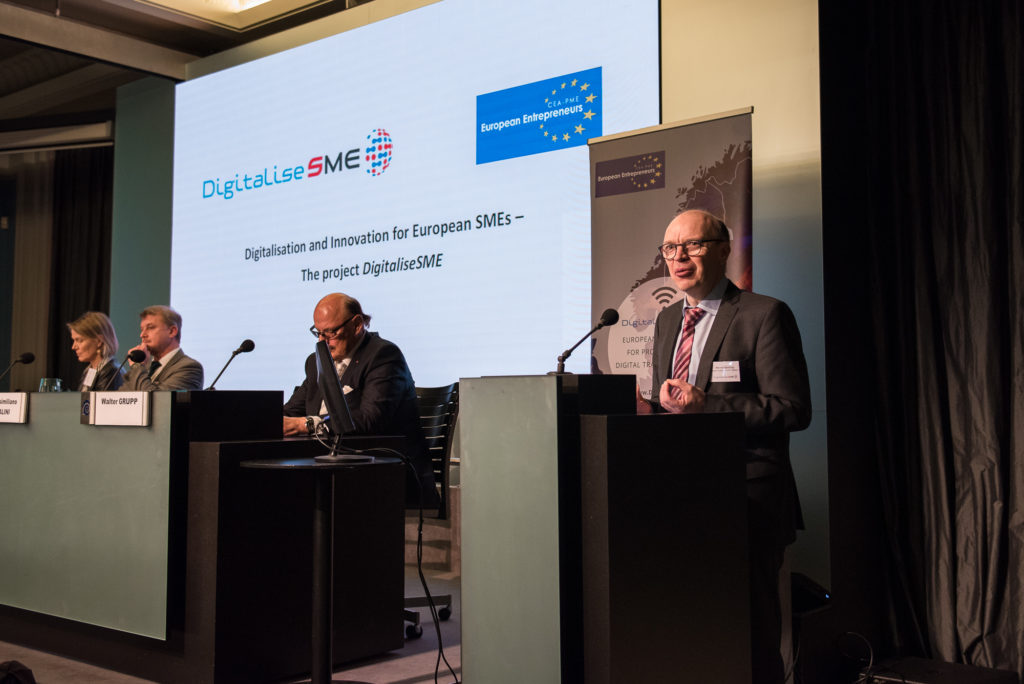
The program moved forward with a detailed presentation of the results. This was done through a panel of speakers composed by the representatives of the project partners and chaired by Jovana Savic, Project Manager of European Entrepreneurs CEA-PME.
The researcher who had run the analysis the results, Prof. Dr. Ivona Skultétyová of the University of Tilburg, also joined the panel. She gave an overview of the results and of the background and methodology used to evaluate them.
She was followed by Dr. Anna Nikiel, Project Coordinator at DIH Photondelta (NL), who delved deeper in the profiles of companies and digital experts that joined the program and how they were correlated based on identified digital needs.
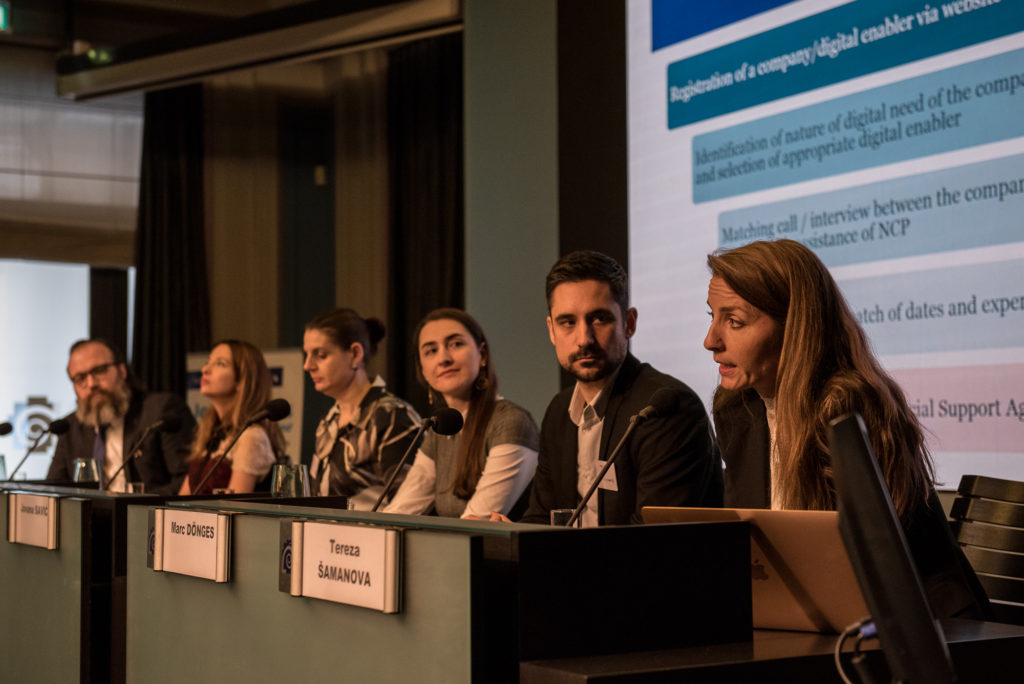
The next project partner to speak was Tereza Šamanová, CEO of CzechInno (CZ) who focused on the matching process, how it delivered and what can be learned from it.
Ionut Tata, CEO of Iceberg Consulting and President of DIH AltBrasov (RO), broadened the picture to look at the role of Digital Innovation Hubs in supporting SMEs, based on the results and on their work in the project.
Marc Dönges, Project Coordinator at Der Mittelstand/BVMW e.V. and DIH Digital Competence Centre Berlin-Brandenburg “Mittelstand 4.0” (DE), concluded the session by looking at what the needs of SMEs for the future are according to the findings of the project and could be done to respond to them.
The presentation of the project partners can be downloaded here
Following a coffee break, the audience had the occasion to hear about the benefits of the matching program form participants themselves.
First they were invited to watch a collection of video statements from companies and Digital Enablers who explained what they expected from a match, how doing it helped them and what they think about the project.
A panel composed of entrepreneurs and Digital Enablers who joined the project then took the stage.
Chaired by Mr Lorenzo Marchese, Communication Manger of European Entrepreneurs CEA-PME, it included Krista Boschian, Manager of the Hotel Baia del Mar in Italy, Maltese Digital Enabler Trevor Buhagiar, who was matched with Baia del Mar and helped it start its digitalisation process, and Romanian Digital Enabler Bogdan Dumitrasconiu.
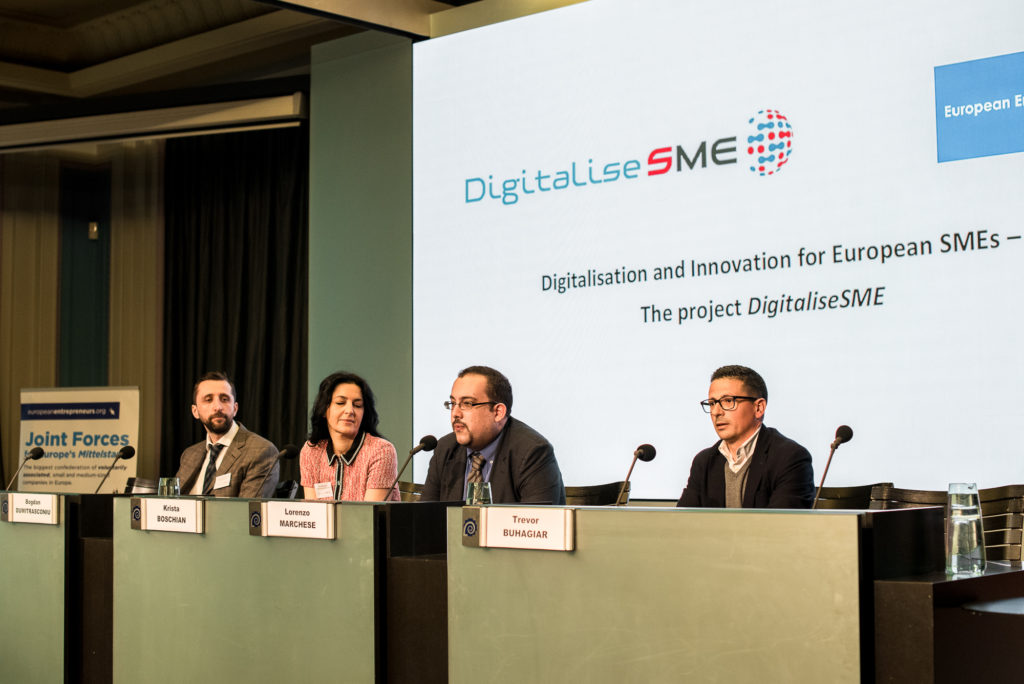
They all discussed their experience in the project and the insights they gained such as why the role of an expert in digitalisation is fundamental to help SMEs move forward with this process, what exactly is needed beyond the strategic part and some suggestions to make the matching program even better.
The event than moved to the closing panel, that focused on the policy framework and its evolution to respond better to the digitalisation needs of SMEs.
Chaired by Mr Moritz, the panel was opened by Mr Jorge Portugal, CEO of the digital innovation hub COTEC Portugal. Mr Portugal really focused on the way digitalisation works for SME: “Digital maturity for SMEs is not about technology but about adapting the business model to new opportunities provided by digitalisation“.
The next panelist was Mrs Silvia Merisio, Policy Officer at the Digital Economy and Skills Unit of DG CONNECT. She argued that the project DigitaliseSME really did a lot in helping design a model to develop digital skills in companies, and that one of its greatest achievements was to find a way to bring together entrepreneurs, managers and digital experts.
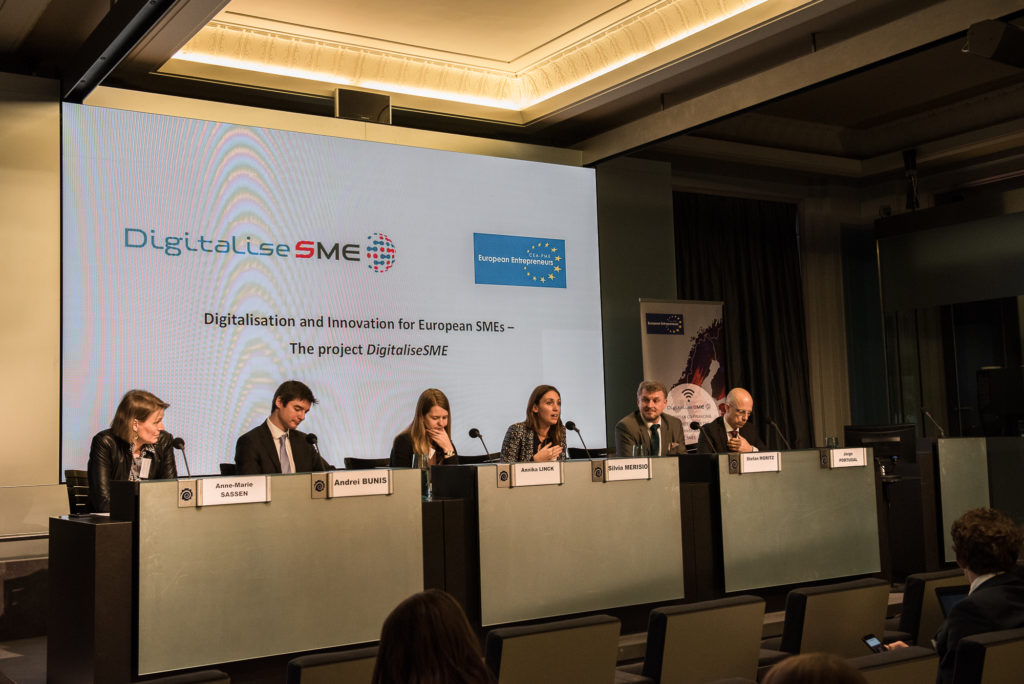
Annika Linck, Project Manager at the European Digital SME Alliance, argued that SMEs often need an an entry point to start digitalise and DigitaliseSME created one by having them collaborate with experts that help them grow
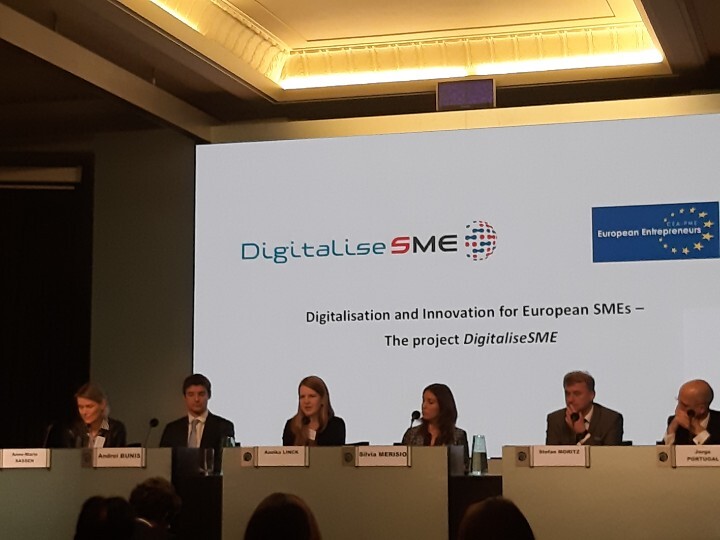
She was followed by Mr Andrei Bunis, Policy Officer at the Advanced Technologies, Clusters and Social Economy Unit at DG GROW of the European Commission, who expanded on the discussion initiated by the previous panelists. He argued that “companies should not be forced to choose one solution that might not fit their business model. That is why skills and training are so important “.
Our last panelist was Mrs Anne-Marie Sassen, who used to occassion to integrate what she had heard during the conference in her vision for future programs for the digitalisation of European SMEs: “ One of the task for digital innovation hubs is really going to be to talk the language of SME. They can learn from DigitaliseSME how to be matchmakers“
The event the concluded with a networking lunch for participants.
To learn more about the results of DigitaliseSME and of its matching program, you can downlaod the DigitaliseSME Brochure “Enabling the Digital Transformation of European SMEs”
Photogallery: